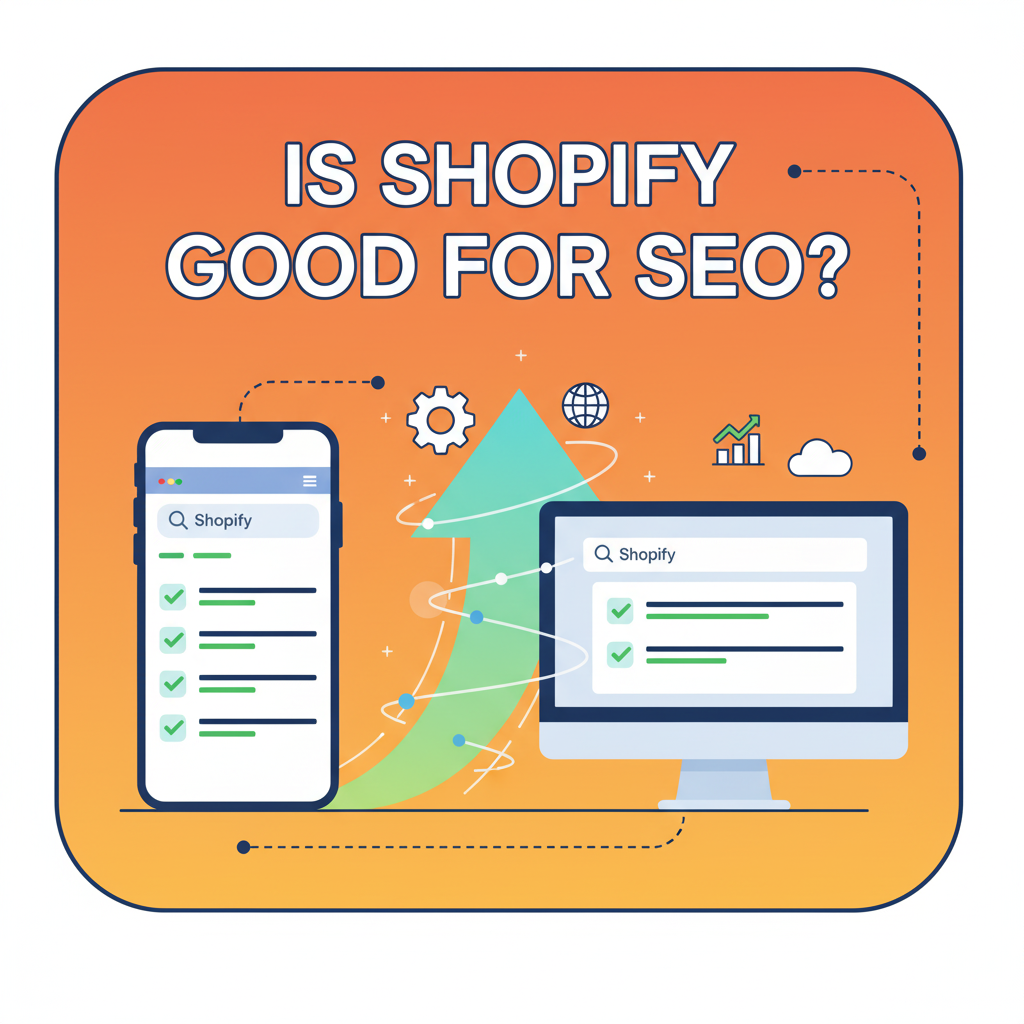If you’re thinking of starting an online store, you’ve probably asked yourself: “Is Shopify good for SEO?” After all, no matter how great your products are, if your store doesn’t show up on Google, no one will find it.
In this guide, I’ll break down how Shopify performs for SEO, its pros and cons, and what you can do to make your store rank higher.
Why SEO Matters for Your Shopify Store
SEO (Search Engine Optimization) is all about making your website easy for Google to understand and rank. For an online store, good SEO means:
- More organic traffic from search engines
- Higher chances of sales without paid ads
- Better long-term visibility
Even if you use paid ads, SEO is essential because traffic from Google is free and consistent once you rank.
Pros of Shopify for SEO
Shopify is one of the most popular e-commerce platforms, and it comes with several SEO-friendly features:
1. Clean and Fast Websites
- Shopify’s themes are generally optimized for speed
- Faster loading websites improve SEO rankings
2. Mobile-Friendly Design
- All Shopify stores are responsive by default
- Google prioritizes mobile-friendly sites in search results
3. Automatic SSL Certificate
- Shopify gives free SSL (HTTPS) for all stores
- Secure sites get a trust boost and slightly better SEO
4. Built-in SEO Features
- You can edit page titles, meta descriptions, and URLs easily
- Alt text for images is supported
- Sitemap and robots.txt files are automatically generated
5. App Integrations
- Shopify has apps like SEO Manager or Plug in SEO to help you optimize even further
- You can add structured data, fix broken links, and optimize page speed
Cons of Shopify for SEO
While Shopify is great for beginners, it has some limitations you should know:
1. Limited URL Structure
- Shopify’s default URL structure includes
/products/and/collections/which can’t be completely customized - Some SEO experts prefer full control over URL structure
2. Code Accessibility
- Advanced customizations (like structured data tweaks or advanced schema) require some coding knowledge
- You might need a developer for complex SEO setups
3. Apps May Affect Speed
- Installing too many apps can slow your store, which may hurt SEO
- You need to carefully select only essential apps
4. Blogging is Basic
- Shopify has a built-in blog, but it’s not as flexible as WordPress for content marketing and SEO
- For content-heavy SEO strategies, you might want to use additional tools
Tips to Improve Shopify SEO
Even with its limitations, Shopify can rank well if you follow these strategies:
- Optimize Your Titles and Meta Descriptions
- Use keywords naturally in your product titles and meta descriptions
- Make them clear and compelling to improve click-through rates
- Use High-Quality Images with Alt Text
- Google can’t “see” images, so always add descriptive alt text
- Compress images to improve page speed
- Create Content-Rich Pages
- Add detailed product descriptions
- Include blog posts for your niche keywords
- Leverage Internal Linking
- Link related products and categories to improve navigation and SEO
- Build Backlinks
- Promote your store to blogs, influencers, and industry websites
- Backlinks increase domain authority and help rankings
Conclusion: Is Shopify Good for SEO?
Yes Shopify is good for SEO, especially for beginners and small business owners. Its clean code, fast themes, mobile-friendly design, and built-in SEO tools make it easy to get started.
However, like any platform, SEO success depends on how you use it. Optimizing product pages, creating quality content, and building backlinks are all crucial.
If you combine Shopify’s built-in features with smart SEO strategies, your store can rank well, attract traffic, and increase sales without spending a fortune on ads.



Pingback: Which Platforms Help Shopify Brands Lower Their Return Rate Effectively? - Pratsify
Pingback: How Do Shopify and WooCommerce Compare on Security and Performance? - Pratsify
Pingback: 10 Reasons Why WordPress Is Better Than Shopify for SEO? - Pratsify
Pingback: Do Tags on Shopify Help With SEO? - Pratsify
Pingback: How to Set Up SEO for Shopify: A Complete Entry Level Guide - Pratsify